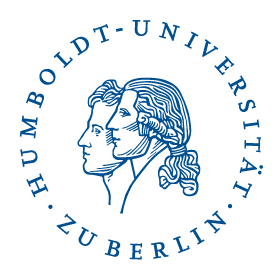Events
We continue the critical debate on our research topics within various public event formats.
Workshop “Socialisation and Social Theory”
- 6 - 7 Mai 2024
- Auditorium, Jacob-und-Wilhelm-Grimm-Zentrum der Humboldt-Universität zu Berlin
with Alyssa Battistoni, Aaron Benanav, Rabea Berfelde, Jacob Blumenfeld, Alex Demirović, Rahel Jaeggi, Elena Hofferberth, Daniel Loick, Samia Mohammed, Cara Röhner, Christian Schmidt, Philipp Staab, Tim Wihl, and Lea Ypi.
Die solidarische Stadt: Soziale Kämpfe und ein Masterplan gegen Armut
- May 28, 2024
- 18:00 » 20:00
- Vierte Welt (am Kottbuser Tor Berlin-Kreuzberg)
Barrikadengespräch mit Katja Kipping und Andrej Holm moderiert von Isette Schuhmacher
ANTHROPOLOGICAL DIFFERENCES – Lectures by Étienne Balibar
- 18 & 19 April, 2024
- University Potsdam and Humboldt-Universität zu Berlin
organised by the Institut für Europäische Ethnologie, Humboldt-Universität zu Berlin and Center for Post-Kantian Philosophy, Universität Potsdam
Erfahrung der Krise – Krise der Erfahrung: wissenschaftliche Tagung der Promovierenden der Hans-Böckler-Stiftung
- 17.-19. April 2024
- Auditorium im Grimm-Zentrum, Humboldt-Universität zu Berlin
Buchdiskussion “Fortschritt und Regression” mit Rahel Jaeggi und Oliver Nachtwey, moderiert von Robert Misik
- January 10, 2024
-
20:00
- Roter Salon, Volksbühne
Die ungleiche Universität – Buchvorstellung und Diskussion mit Sabine Hark und Johanna Hofbauer
- December 14, 2023
- 18:00 » 20:00
- Fritz-Reuter-Saal, HU
Moderation Rahel Jaeggi
Vergesellschaftung des Gesellschaftlichen
- 8. - 9. Dezember 2023
- Auditorium, Jacob-und-Wilhelm-Grimm-Zentrum, Humboldt-Universität zu Berlin
Workshop mit Sabine Nuss, Christoph Sorg, Jacob Blumenfeld, Rabea Berfelde, Alex Demirović, Daniela Ruß, Isabel Feichtner, Janina Urban, Ralf Hoffrogge, Silke van Dyk, Jenny Stupka
Solidarity in the Migration Society
- October 9, 2023
- Technische Universität Berlin (Mo, 9.10.2023), Deutsches Architekturzentrum DAZ (Di-Mi, 10.-11.10.2023)
Gegen-Gemeinschaften – Manuskriptdiskussion mit Daniel Loick
- July 17, 2023
- 10:00 » 18:00
- Centre for Social Critique
Daniel Loicks Manuskript kommentieren Robin Celikates, Charlie Ebert, Sabine Hark, Rahel Jaeggi, Mike Laufenberg, Francesca Raimondi, Christian Schmidt und Veronika Zablotsky.
New Revolutionary Subjects: In memoriam Herbert Marcuse
- July 5, 2023
- 18:00 » 20:00
- Vierte Welt
Gianfranco Casuso, Robin Celikates, Alex Demirović, Verónica Gago, Sally Haslanger, Rahel Jaeggi, and Eva von Redecker discuss the need for a revolutionary subject and current candidates for this role.
The Futures of Marx
- June 28-29,2023
- Volksbühne Berlin, Roter Salon,
The Symposium The Futures of Marx brings together voices from the new international discussion of Marx that seek to tap into more open futures and that draw from more diverse sources than previous debates.
Workshop – Ideology and Social Transformation
- June 27, 2023
- 10:00 » 19:00
- Humboldt-Universität zu Berlin, Auditorium Grimm Zentrum
Robin Celikates, Alice Crary, Rachel Fraser, Sally Haslanger, Rahel Jaeggi, Christian Schmidt, Titus Stahl and others discuss current understandings of and approaches to the concept of ideology and its role in theories of social reproduction and transformation.
Structural Racism and Anti-Racist Struggles
- May 30, 2023
- 18:00 » 20:00
- Humboldt-Universität zu Berlin, Audimax 2
Sally Haslanger, Daniel James, Kristina Lepold and Bafta Sarbo discussed different understandings of structural racism and the concept’s implications for anti-racist struggles.
Philosophy and Activism
- April 19, 2023
- 10:00 » 18:00
- Centre for Social Critique
William Callison, Gen Eickers, Daniel James, Antoine Louette, Deborah Mühlebach, Cain Shelley, Veronika Zablotsky and Temi Ogunye discuss the relationship of activism and philosophy.
Change². The Disruptions of Social Structures
- February 20 -21, 2023
- Humboldt Universität zu Berlin, seminar room 1.103
Frederick Neuhouser, Karen Ng, Arvi Särkelä, Kolja Möller, Steffen Mau, Hanna Meißner, Thomas Seibert, Sabine Hark, Daniel Loick, Antoine Louette, Eva von Redecker, Christian Volk, Rahel Jaeggi, Robin Celikates and in a special online appearance Sally Haslanger, Michele Moody-Adams, and Theodore Schatzki discussed different dimensions of fundamental social change.
Die Revolte der Natur / La révolte de la nature
- 26.-27. Januar 2023
- Centre Marc Bloch Berlin, in Kooperation mit Centre for Social Critique, Berlin
Braucht Kritische Theorie noch die Natur? Gesellschaftstheoretische und sozialwissenschaftliche Perspektiven im Workshop am Centre Marc Bloch Berlin.
Theses on the Critique of Needs
- July 6, 2022
- 18:30 » 20:00
- Humboldt-Universität zu Berlin, Auditorium Grimm Zentrum
Robin Celikates, Maeve Cooke, Lawrence Hamilton, Rahel Jaeggi, Sarah Clark Miller, Frank Nullmeier and Alessandro Pinzani discussed their takes on a critique of needs.
Practice, power, and forms of life
- June 28, 2022
- 15:00 » 18:30
- Humboldt-Universität zu Berlin, Auditorium Grimm Zentrum
A discussion on Terry Pinkard‘s latest book Practice, Power, and Forms of Life—Sartre’s Appropriation of Hegel and Marx (University of Chicago Press 2022) with the author and commentaries by Rahel Jaeggi, Jonathan Klein, and Christian Schmidt.
Three Faces of Capitalist Labor: Uncovering the Hidden Ties among Gender, Race and Class
- June 14-16th 2022, 18:00 >> 20:00
- Haus der Kulturen der Welt
Nancy Fraser’s 2022 Benjamin lectures were inspired by a striking claim made by W.E.B. Du Bois in his 1935 masterpiece, Black Reconstruction. Characterizing abolition as a labor movement, Du Bois held that US history would have been fundamentally altered had the anti-slavery forces been united with movements of free white wage workers. For Du Bois, […]
The Struggle over the Public Sphere
- June 2, 2022
- 16:15 » 19:00
- Humboldt-Universität zu Berlin
What is “the public”? Who is able and allowed to speak in it? Which issues and which styles of discussion are adequate for public debate? In this workshop with Nancy Fraser, Carolin Wiedemann and Sebastian Sevignani we will ask how to theoretically reconstruct and politically intervene into the contemporary struggle over the public sphere. Hosted […]
Racialized Capitalism?
- May 30, 2022
- 18:00 » 20:00
- Humboldt Universität zu Berlin, Audimax II (Hörsaalzelt)
Are capitalist societies necessarily racist? If so, why? Robin Celikates in conversation with Manuela Bojadžijev, Nancy Fraser and Bafta Sarbo.
How green is socialism?
- May 13, 2022
- 18:00 » 20:00
- Humboldt Universität zu Berlin, Audimax II (Hörsaalzelt)
The current ecological crisis seems to be deeply linked to the capitalist exploitation of nature. Does a socialist society offer an adequate solution to this problem? What are the limits of capitalist adaption? with Klaus Dörre, Nancy Fraser and Raul Zelik.
The Convergence of Social Struggles
- February 17, 2022
- 18:00 » 20:00
- online
How are differenct emancipatory struggles connected? Is there a central origin of the relations of exploitation or is their relation more complex? Amna Akbar, Silke van Dyk, Manon Garcia and Romin Khan discussed whether actual experiences indicate that social struggles have a common direction and what dynamics prevent such a convergence.
What Approach to Social Totality Does a Critical Theory Need Today?
- December 9, 2021
Is there still a need for a comprehensive social theory today that clarifies the interrelation and interaction of the various social spheres? In her influential 1994 essay “Gender as Seriality,” Iris Marion Young is skeptical. Much effort, she argues, has gone into theories that serve no particular purpose other than “to understand, to reveal the […]
Global Forum on Democratizing Work: Three panels on Democratize, Decarbonize and Decommodify
- October 5, 2021
- 14:30 » 16:30
- online
From October 5 to 7, 2021, as part of the Global Forum of the international initiative #democratizingwork we discussed the topics of “democratization”, “decommodification” and “decarbonization” of work in more detail with journalists, academics, activists and trade unionists on three different online panels. This follows on from our In Context series of events on the […]
Foundations of Solidarity
- July 7, 2021
- 18:00 » 20:00
- Online
In this round table event we discussed with Hauke Brunkhorst, Stefan Gosepath, Asad Haider, Sabine Hark, Serene Khader, Stefan Lessenich, and Frederick Neuhouser. Organized by the Humanities and Social Change Center Berlin (Humboldt-Universität zu Berlin) in cooperation with the Frankfurt Institute for Social Research and the New School for Social Research (Alice Crary). How can […]
A New Socialism for a New Century?
- July 1, 2021
- online
with Bhaskar Sunkara, Christine Berry and Axel Honneth
The Working Sovereign: A Democratic Theory of the Division of Labor
- June 16, 2021
- 18:00:00 » 20:00:00
- Freiluftkino Hasenheide
On June 16th, 17th, and 18th, 2021, Axel Honneth will give the Benjamin Lectures on “The Working Sovereign: A Democratic Theory of the Division of Labor”. One of the greatest shortcomings of almost all theories of democracy is the tendency to repeatedly forget, with a certain stubbornness, that most members of the loudly invoked sovereign […]
Whose City? Urban Struggles in the Age of Gentrification
- March 31, 2021
- 16:00:00 » 18:00:00
- live
with Lisa Vollmer, Mustafa Dikeç, Christian Volk and Robin Celikates
Rassismuskritik nach Hanau
- February 18, 2021
- 18:30:00 » 20:30:00
- live
mit Vanessa E. Thompson and Serhat Karakayali
Moderation: Robin Celikates
Pandemic Politics: Contested Expertise and Activist Perspectives
- March 23, 2021
- online (pre-recorded video)
with Gregg Gonsalves, Rahel Jaeggi and Robin Celikates
Enteignen und dann?
- January 12, 2021
-
18:00:00
- livestream
Mit Sabine Nuss und Hans-Jürgen Urban
Je größer die Verwerfungen auf dem Wohnungsmarkt, je größer überhaupt die ökologischen und sozialen Krisen werden, die die freie Marktwirtschaft produziert, umso lauter werden auch die Stimmen, die nach radikalen Lösungen rufen.
Die Krise der Sorgearbeit überwinden
- December 15, 2020
- online
mit Frigga Haug und Julia Fritzsche
Für einen kurzen Augenblick konnte es so scheinen, als habe die Corona-Pandemie endlich das breite gesellschaftliche Bewusstsein dafür geschaffen, wie wichtig Pflege und Sorge für uns alle sind. Zu wichtig, um genau zu sein, um sie weiter unter so schlechten Bedingungen wie gegenwärtig zu organisieren. Das Home-Schooling im Home-Office, der Pflegenotstand in Krankenhäusern und Altenheimen schienen endlich die nötige Aufmerksamkeit für die Belastungen und prekären Bedingungen alltäglicher Sorge zu erzeugen.
#DemocratizingWork
- November 4, 2020
- online
with Neera Chandhoke, Isabelle Ferreras and Lisa Herzog
“Working humans are so much more than ‚resources‘. This is one of the central lessons of the current crisis.“ The worldwide political call of several thousand scientists who are taking the corona pandemic as an occasion to demand changes in the world of work begins with these words.
Corona within Precarity Capitalism
- October 2, 2020
- online
with Albena Azmanova
In her latest book Capitalism on Edge (Columbia University Press, 2020), Albena Azmanova has diagnosed the contemporary socio-economic constellation as ‘precarity capitalism’, arguing that generalized insecurity (precarity), rather than inequality, is the main social affliction of our times. This opens new avenues for emancipatory critique and radical politics.
Borders and Solidarity in Times of Corona
- June 17th
- online
with Manuela Bojadžijev and Muhammad al-Kashef
In this conversation with the anthropologist and migration scholar Manuela Bojadžijev (HU Berlin) and the researcher and activist Muhammad al-Kashef (Watch The Med Alarm Phone) we explored the changing dynamics of borders and solidarity in times of corona.
Corona im Kapitalismus: Ende des Neoliberalismus?
- May 14th
- online
mit Ulrike Herrmann und Alex Demirović
Im Rahmen unserer Reihe In Context diskutieren Alex Demirović und Ulrike Herrmann über die Corona-Krise. Im Fokus stehen dabei Überlegungen zur angemessenen Krisenbeschreibung, zu den möglichen Folgen der Krise sowie zu den politischen Alternativen, die sie nahelegt.
Corona Capitalism: Struggles over nature
- May 27th
- online
with Andreas Malm
In his recent book Corona, Climate, Chronic Emergency: War Communism in the Twenty-First Century (forthcoming with Verso books) Andreas Malm argues that the origin and proliferation of the coronavirus are tightly intertwined with global capitalist production that destroys natural habitats, consumes land and wildlife, trades commodities around the globe, and moves people from one side of the planet to the other at a speed unprecedented in history.
Benjamin Lectures
- June 16th-18th, 2021
- Humboldt Universität zu Berlin
From June 16th – 18th 2021, the prominent lecture series of the Humanities and Social Change Center Berlin will take place for the second time at the Humboldt-Universität zu Berlin. The social philosopher Axel Honneth will hold the lectures. For more information, visit the section Benjamin Lectures on our website.
International Summer School
- July 5th-10th, 2021
- Humboldt Universität zu Berlin
Despite a widespread diagnosis that solidarity is in crisis, appeals to solidarity are ubiquitous today. We encounter them on the level of personal and professional relations but also with regard to institutions and systems of social security and welfare. They gain a dramatic character when human lives are in danger, e.g. when refugees have to […]
Über Sozialismus reden
- December 12, 2019
- 18:00:00 » 21:00:00
- Vierte Welt
Von der TAZ über die ZEIT bis zur FAZ ist man sich einig. Er ist wieder da der „rote Geist“ und er hat auch – ob als „verheißungsvoller Prophet“ oder „Schreckgespenst“ klassifiziert – einen Namen: „Sozialismus“. In den Mutterländern des Neoliberalismus, den USA und Großbritannien, können Politiker*innen, die offen für einen „demokratischen Sozialismus“ und einen […]
50 Years On: New Readings of Adorno
- December 5th/6th 2019
- Humboldt-Universität zu Berlin
On the occasion of the 50th anniversary of Adorno’s death in 2019, we organized an international workshop that brought together representatives of new readings of Adorno. Together we discussed how, by going back to Adorno, we can deepen contemporary debates in the philosophy of language, moral and social philosophy.
Re-Thinking Socialism
- December 12, 2019
- 18:00:00 » 21:00:00
- Vierte Welt
Whether classified as a “promising prophet” or a “spectre of horror”, journalists from TAZ to Zeit to FAZ seem to agree that the “red spirit” called socialism is back. In the mother countries of neoliberalism, the USA and Great Britain, politicians* who openly plead for “democratic socialism” and “real change” can mobilize broad masses. In […]
Crisis of Democracy or Crisis of Reason?
- July 5, 2019
- 17:00:00 » 18:30:00
- Humboldt Universität zu Berlin, Senatssaal,
with Andrew Arato, Jean Cohen, Fabian Freyenhagen, Regina Kreide and Frederick Neuhouser
Democracy is in crisis. Phenomena such as the electoral success of authoritarian leaders as well as the growing distrust in public institutions and media certify this. But what are the underlying reasons for such developments? Is this crisis democracy’s own crisis, or does it originate elsewhere in the social order?
Is there another people?
- June 7, 2019
- 18:00:00 » 21:00:00
- Humboldt-Universität zu Berlin, Senatssaal
with Andrew Arato, Jean Cohen and Oliver Marchart
The controversy about how to evaluate the concept of “the people” evolves around pressing political questions that are in need of further theoretical reflection. Is it possible to distinguish an emancipatory, inclusive and subaltern people from a reactionary, nationalist and exclusive one that is based on the privilege of identity? Or are both ways of defining the demos deeply entangled with each other, both historically and conceptually?
Benjamin-Lectures: Democracy and its Crises
- June 17th–19th, 6.00 pm – 8.00 pm
- Humboldt Universität zu Berlin, Emil-Fischer-Hörsaal,
Last June, the Humanities and Social Change Center Berlin launched its new event format, the annual Walter-Benjamin-Lectures. The Canadian philosopher Charles Taylor inaugurated the prominent series. In a sequence of three evening lectures, Taylor addressed “Democracy and its Crises”, covering various forms of democratic deterioration, such as political alienation, increasing inequality, xenophobia and polarization, as […]
Book Launch: Exodus oder dialektische Negation
- February 13, 2019
- 18:00:00 » 20:00:00
- Humboldt University Berlin, R. 1070
Anlässlich der Publikation seiner Dissertation stellte Victor Kempf seine Überlegungen zur zeitgenössischen Kapitalismuskritik zur Diskussion. (Kommentar von Eva von Redecker. Moderiert von Daniel Loick) Der “Exodus” aus den Vermittlungsfiguren der bürgerlichen Gesellschaft ist zu einem populären Ansatz der radikalen Kapitalismuskritik geworden. Doch wodurch ist diese Fundamentalzurückweisung einer immanenten Einklagung der Freiheits- und Gleichheitsversprechen des modernen […]
Krise, Kritik und Zukunft des Sozialstaats
- January 9, 2019
- Vierte Welt
Im Rahmen der Reihe „Critical Theory in Context“ (Lehrstuhl für Sozialphilosophie/Center for Humanities and Social Change, HU Berlin) diskutierten Claus Offe (Professor Emeritus of Political Sociology an der Hertie School of Governance) und Stephan Lessenich (Professor an der Ludwig-Maximilians-Universität München) über Krise, Kritik und Zukunft des Sozialstaates. Die Veranstaltung fand am 09.01.2019 von 18-21 Uhr […]
Barrikadengespräch: Aneignung und Enteignung: Zur Wohnungsfrage
- December 19, 2018
- 18:00:00 » 21:00:00
- Vierte Welt
„Die Häuser denen, die drin wohnen“ ist eine griffige Formel aus der Hausbesetzer-Bewegung und die Vorstellung, dass Häuser zum Wohnen da seien, scheint unstrittig. Da Immobilien aber auch als Geldanlagen und Spekulationsobjekte genutzt werden, kommt es derzeit in vielen Metropolen zu Auseinandersetzungen darüber, wie überhaupt noch sichergestellt werden kann, dass Häuser bewohnbar oder Mieten bezahlbar […]
Problems of Property
- December 17th/18th 2018
- Humboldt University Berlin, Senatssaal
Property is a key institution both in the capitalist economy and in liberal political orders. Property law regulates access to material goods as well as symbolic status, it is seen as the foundation for personal liberty and political legitimacy, and it mediates our relation to the world of objects. While many critical discussions concern the […]
Multiple Krise und Krisenbewältigung. Eine Diskussion mit Alex Demirovic
- October 16, 2018
- 18:00:00 » 21:00:00
- Humboldt University Berlin, R. 2249 a
Eine Welt im Krisenmodus. Der Begriff der Krise hat sowohl im öffentlichen als auch wissenschaftlichen Diskurs Konjunktur. Zu einer Leitkategorie gesellschaftlicher Reflexion avanciert, dient er der Beschreibung und Bewertung bestimmter disruptiver Entwicklungen und Dynamiken moderner Gesellschaften. Augenscheinlich ist dabei, dass sich gegenwärtig nicht nur die Krisendiagnosen mehren. Ebenso ist eine Tendenz zu beobachten, ganz unterschiedliche […]
The Concept of Ideology in Critical Theory
- July 16, 2018
- 19:00 » 21:00
- Jakob-und-Wilhelm-Grimm-Zentrum, Auditorium
The concept of ideology played a crucial role in explaining the stability of domination at a time when capitalism’s inherent contradictions seemed ripe for it to be overcome. The idea of “false consciousness”, so central to the theorizing of the first generation of Frankfurt School thinkers, resonates with a range of ideas across various strands […]
Ideology: Résumé & Future Perspectives
- July 20, 2018
- 17:00:00 » 19:00:00
- Humboldt University Berlin, R. 2249 a
This round-table marked the conclusion of the 2018 Critical Theory Summer School on Ideology. It attempted to summarize some strands of the discussions pursued throughout the week and asked specifically about what new directions and impulses should guide ideology critique. Do we need a more comprehensive framework for unifying various analyses, for instance within a […]
Authoritarianism: Rule or Exception?
- July 4, 2018
- 20:00:00 » 22:00:00
- Maxim Gorki Theater
Invited speakers: Prof. Seyla Benhabib (Yale University), Prof. Zeynep Gambetti (Boğaziçi University) In cooperation with Berlin Correspondences. Authoritarian movements and governments resurface globally. They are often presented as a shocking aberration from the progressive norm. But whether we should see authoritarianism as rule or exception to the present world order hinges on how we […]
Emancipation
- 25. - 27.5.2018
- Haus der Kulturen der Welt; Humboldt University; Technical University
From 25-27 May 2018 the international conference “Emancipation” took place in Berlin. It was organized by Humboldt University Berlin, Center for Humanities & Social Change at HU Berlin, Technical University Berlin and medico international e.V. Leading international scientiests and intellectuals discussed practices and theories of emancipation in three plenary sessions and twelve colloquia. Emancipation points […]
Zur Rekonstruktion und Aktualität der Theorie des autoritären Charakters
- February 8, 2018
- 18:00:00 » 21:00:00
- Vierte Welt
Von #hatespeech über #fakenews, Reichsbürgertum und Rechtspopulismus bis hin zum US- Präsidenten – die Weltlage scheint so sehr aus den Fugen geraten, dass sich kaum eine Debatte ihrem Sog entziehen kann. Dass zur Erklärung dieser Phänomene mehrere Ebenen der Analyse ineinandergreifen müssten, ist weitgehend unbestritten: Milieu und Herkunftsgeschichte der Beteiligten, die Struktur der Öffentlichkeit sowie […]
The Social and Political Philosophy of Solidarity
- 7.-8.12.2017
- Humboldt University Berlin
In recent years there has been a renewed interest in the concept of solidarity in moral, social and political philosophy. With only a few exceptions, the concept had either been completely neglected or assimilated to other notions like social cohesion in thick communities (Jürgen Habermas, communitarianism) or altruistic concern (Richard Rorty) in post-war philosophy. What […]
The Return of the Class Question? The success of the new right in sociological perspective
- November 30, 2017
- 18:00:00 » 21:00:00
- Vierte Welt
The present discussion about the success of the New Right is highly controversial: While some blame identity politics and its neglection of the traditional social question for the emergence and success of right-wing populism, others are unwilling to betray the political progresses and theoretical insights which have been made possible by the struggles for social […]
Dialectics of Progress. Critical Theory and Social Change
- 26.-27.10.2017
- New School for Social Research, 6E D1103
The Dialectics of Progress was a two-day long workshop hosted at the New School, New York. Together with the Critical Theory Summer School 2017 on “Progress, Regression, and Social Change”, the workshop formed the twin event funded by the DFG “seeds” program dedicated to ongoing cooperation arising out of the Theodor-Heuss-Professorship at the New School […]
Wendy Brown: Neoliberal revolution and apocalyptic populism
- June 30, 2017
- 17:00:00 » 19:30:00
- Vierte Welt
In her latest book, Undoing the Demos, Wendy Brown has provided an analysis of neoliberalism not just as enforced market liberalization, but as a specific form of governmentality. Under the rule of neoliberalism, subjects and institutions are molded and re-invented according to the norms of homo oeconomicus. Reification-effects are thus not described as results of […]
Critical Theory and the urge for progress
- July 17, 2017
-
18:30:00
- Humboldt University Berlin, Grimm Auditorium,
The opening panel of the 2017 Critical Theory Summer School was devoted to the role of progress in Critical Theory. Understood as a kind of learning process or even the trajectory of history overall, progress has played a central role in Critical Theory from the beginning. At the same time, it has been regarded as […]
The dynamics of social change
- July 20, 2017
-
18:30:00
- Humboldt University Berlin, Grimm Auditorium,
If we take seriously that progress is not just a random improvement but comes about in historical processes, the question of how social change is theorized moves center stage. Is there such a thing as logics of history? Which social theory can best account for transformation? Is there a type of dynamics specific to progress, […]
Progress and regression
- July 21, 2017
-
18:30:00
- Humboldt University Berlin, UL 6 R. 2249 a,
This panel served as the wrap-up for the 2017 Critical Theory Summer School. Alice Crary and Anna Katsman opened the discussion with their reports on the week’s discussions, afterwards core questions and debates were revisited by Hauke Brunkhorst, Rahel Jaeggi, Alessandro Pinzani and Martin Saar.
Maeve Cooke: Forever Resistant? Adorno and Political Protest
- June 22, 2017
- 18:00:00 » 21:00:00
- Humboldt University of Berlin, UL 6, R. 2097
While Max Horkheimer defined Critical Theory as the intellectual side of political struggles, Theodor Adorno is notorious for his skepticism vis-a-vis political action, most pronounced in his uneasy relation to the ’68 students movement. Maeve Cooke traces this back to a problematic conception of the (dis-)connection between theory and practice in Adorno’s philosophy. Against what […]
Social Inequality, Right-wing populism and Anti-genderism – a discussion with Sabine Hark and Sighard Neckel
- April 27, 2017
- 18:00:00 » 21:00:00
- Vierte Welt
In the framework of the Critical Theory in context series Sabine Hark, Professor of interdisciplinary women’s and gender studies at Technical University of Berlin, and Sighard Neckel, Professor of sociology at University of Hamburg, discussed the topic “social inequality, right-wing populism and anti-genderism“. This event was a follow up of the last talk within this […]
The moral basis and expressive role of distributive principles – a workshop with Daniel Brudney
- May 17, 2017
- 09:00:00 » 20:00:00
- Humboldt University of Berlin
The workshop focused on Daniel Brudneys new work on dependency, the expressive role of distributive principles of justice and the choice of a conception of the person in a theory of justice. Daniel Brudney is Professor of philosophy at the University of Chicago. He has published widely in political and moral philosophy, especially on theories […]
Oliver Nachtwey: Die Abstiegsgesellschaft. Über das Aufbegehren in der Regressiven Moderne
- February 16, 2017
- 18:00:00 » 21:00:00
- Vierte Welt
Oliver Nachtwey hat im Rahmen der Reihe “Critical Theory in Context” des Lehrstuhls für Sozialphilosophie an der Humboldt-Universität unter anderem mit Regina Kreide und Micha Brumlik und vielen anderen Interessierten sein jüngst erschienenes Buch “Die Abstiegsgesellschaft. Über das Aufbegehren in der Regressiven Moderne” in der Vierten Welt am Kottbusser Tor diskutiert. Hier finden Sie einen […]
Fabian Freyenhagen: Was ist orthodoxe Kritische Theorie?
- January 26, 2017
- 18:00:00 » 21:00:00
- Humboldt-University of Berlin, Senatssaal,
Critical Theory Roundtable #2 Fabian Freyenhagen: Was ist orthodoxe Kritische Theorie? Max Horkheimer bestimmte 1937 die Kritische Theorie als “vom Interesse an vernünftigen Zuständen durchherrscht”, und damit als die “intellektuelle Seite” des historischen Prozesses der Emanzipation. Dieses Interesse lasse die Theorie “auf bestimmte Weise als parteiisch” erscheinen, “da sie den herrschenden Denkgewohnheiten, die zum Fortbestehen […]
Flucht, Migration, Grenzen
- December 9, 2016
- 15:00:00 » 20:00:00
- Humboldt-University of Berlin, Senatssaal,
Der Lehrstuhl für Praktische Philosophie und Sozialphilosophie der Humboldt-Universität zu Berlin veranstaltete am 09. Dezember 2016 einen Workshop zum Thema „Flucht, Migration, Grenzen“ mit Jan Brezger, wissenschaftlicher Mitarbeiter am Lehrstuhl Praktische Philosophie und Didaktik der Philosophie an der HU Berlin, Andreas Cassee, Visiting Fellow der Kollegforschergruppe “Justitia Amplificata” an der FU Berlin, Christoph Menke , Professor für Praktische Philosophie mit Schwerpunkt Politische […]
Contradictions of Capital and Care – Diskussionsrunde mit Nancy Fraser
- October 26, 2016
- 18:00:00 » 21:00:00
- Humboldt-University of Berlin, Senatssaal,
Nancy Fraser ist Henry A. und Louise Loeb Professor of Political and Social Science und Professorin für Philosophie an der New School in New York City. Grundlage der Diskussion mit Nancy Frasers war ihr kürzlich veröffentlichter Artikel zum Thema „Contradictions of Capital and Care“. In diesem vertritt Nancy Fraser die These, dass sich kapitalistische Gesellschaften […]
Markets and Morals
- December 8, 2013
- 09:00:00 » 20:00:00
- Humboldt-University of Berlin,
A Workshop on normative questions about markets At least since Mandeville’s infamous Fable of the Bees, friends and foes of markets have argued about their normative value and their compatibility with principles of morality. While economic theorizing has mostly focused on functional aspects of markets, normative philosophy asks about ways in which markets can be […]
Capitalism, Crisis, Critique – Ein Workshop mit Nancy Fraser
- November 23, 2012
- Humboldt-Universität Berlin
Angesichts der gegenwärtigen Krise, die sich laut Fraser nur als verständlich erschließt, wenn man ihre drei Facetten (ökologische Krise, Finanzkrise, Krise der sozialen Reproduktion) zusammenhängend betrachtet, schlägt sie eine kritische Erneuerung der Gesellschaftsanalyse von Karl Polanyi vor. Organisation: Prof. Dr. Rahel Jaeggi Forschungskolleg “Postwachstumsgesellschaften” an der Universität Jena
Die Aktualität des Sozialismus
- 5. und 6. Juli 2016
- Humboldt-University of Berlin, Senatssaal/Audimax,
Podiumsdiskussion mit Axel Honneth, Christoph Menke, Gesine Schwan und Sahra Wagenknecht Gehört das Projekt des Sozialismus zurück auf die Agenda einer progressiven linken Politik? In seinem neuen Buch Die Idee des Sozialismus bejaht Axel Honneth diese Frage. Soziale Freiheit, so Honneths These, ist „die eigentliche Idee des Sozialismus“. Mit seiner Neubestimmung der normativen und gesellschaftstheoretischen Grundlagen […]
Leben im Kapitalismus – Kapitalismus als Lebensform?
- December, 11-12 2015
- Humboldt-Universität Berlin
Der Begriff der Lebensform hat Konjunktur – sowohl in der sozialphilosophischen, als auch in der sozialwissenschaftlichen und ethnologischen Forschung. Er scheint daher prädestiniert, um einen interdisziplinären Dialog über die Lebensweise in unserer gegenwärtigen Gesellschaft zu führen. Der Workshop lädt daher Vortragende aus Philosophie, Soziologie und Ethnologie ein, gemeinsam über das Thema „Leben im Kapitalismus – […]
Rethinking Property
- 24. und 25. Oktober 2016
- Humboldt-University of Berlin, Senatssaal,
Kritische Perspektiven auf ein Klassisches Konzept Mit Eigentum wird ein Bündel von sozialen Praktiken bezeichnet, das den Zugang zu begehrten Gütern regelt. Die daraus resultierenden Eigentumsordnungen bestimmen die soziale Ontologie einer Gesellschaft. Wer mit welchen Dingen was tun darf, prägt wesentlich das institutionelle Gefüge einer Gesellschaft und die konkreten Praktiken des sozialen Zusammenlebens. Fragen des […]
Soziale Pathologien
- 14. und 15. Juli 2014
- Humboldt-University of Berlin, Festsaal,
Der Begriff der „sozialen Pathologie“ erfährt in der Sozialphilosophie gegenwärtig neue Aufmerksamkeit. Axel Honneth prägt den Begriff in seinem 1994 erschienenen Aufsatz „Pathologien des Sozialen: Tradition und Aufgabe der Sozialphilosophie“ in einer für die gegenwärtige Diskussion maßgeblichen Weise: Er versteht unter sozialen Pathologien Fehlentwicklungen bzw. Störungen der sozialen Bedingungen individueller Selbstverwirklichung. Indem die Sozialphilosophie negativistisch […]
Power – Critical Theory, Social Ontology
- 3. und 4. Mai 2013
- Humboldt-University of Berlin,
In recent years, questions concerning the fundamental structure of social reality have increasingly received attention within analytic philosophy. Building on the work of theorists such as Raimo Tuomela, John Searle, Michael Bratman and Margaret Gilbert, phenomena such as collective agency, group intentions, institutional facts and constitutive relations between different features of social reality have become […]
Authorship and Ethical Living – Ein Workshop mit Sabina Lovibond
- 14.-16. Juni 2012
- Humboldt University Berlin
Sabina Lovibond hat sich an der Debatte um die Reaktualisierung der Tugendethik, wie sie seit den 1950er Jahren in der englischsprachigen Philosophie geführt wird, mit ihrem Buch „Ethical Formation“ wegweisend beteiligt. Sie entwickelt darin eine neoaristotelische Moralphilosophie und Theorie der Charakterbildung, die subjektkritischen Einwänden standhalten aber zugleich Raum für widerspenstige Praktiken lassen soll. Im jüngsten […]











